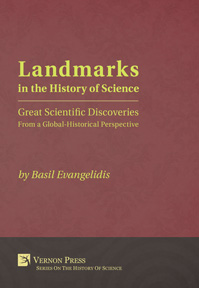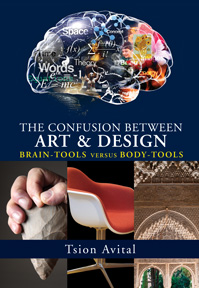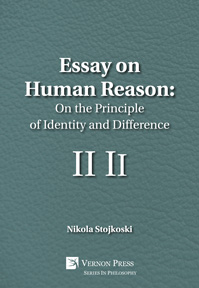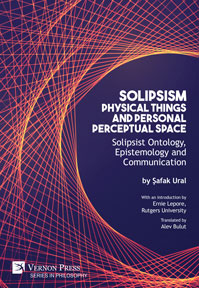Reason, causation and compatibility with the phenomena
by Basil Evangelidis
Purchase this book
(click here to change currency)
'Reason, Causation and Compatibility with the Phenomena' strives to give answers to the philosophical problem of the interplay between realism, explanation and experience. This book is a compilation of essays that recollect significant conceptions of rival terms such as determinism and freedom, reason and appearance, power and knowledge. This title discusses the progress made in epistemology and natural philosophy, especially the steps that led from the ancient theory of atomism to the modern quantum theory, and from mathematization to analytic philosophy. Moreover, it provides possible gateways from modern deadlocks of theory either through approaches to consciousness or through historical critique of intellectual authorities.
This work will be of interest to those either researching or studying in colleges and universities, especially in the departments of philosophy, history of science, philosophy of science, philosophy of physics and quantum mechanics, history of ideas and culture. Greek and Latin Literature students and instructors may also find this book to be both a fascinating and valuable point of reference.
Abbreviations
Preface
Introduction
Chapter 1 Causation, determinism and the universe
1. Natural principles and the rise of free-will
1.1. “The most exact of the sciences”
1.2. Truth and causes
2. From fate to new forms of causation
2.1. Final causality
2.2. Aristotle’s concepts of cause and necessity
2.3. Soul and movement
3. Fall and clinamen
3.1. Lucretius’ arguments on the swerve and free-action
3.2. Lucretian universe and the swerve
4. Diodorus Cronus’ Master Argument
4.1. Stoic signs, sense, denotation
4.2. Conditional propositions and causation
4.3. Namenlogik versus Aussagenlogik
4.4. Cicero on fate
4.5. Active cause
5. On determinism, cosmos and providence
5.1. God and first principle
5.2. Alexander on cosmos and providence
5.3. Hellenistic and Christian philosophy
Chapter 2 Reason, evidence and truth
1. Notions of evidence and truth
1.1. Philosophical method
1.2. Realistic strongholds
2. Truth and being
2.1. Nominalists against realists in the Middle Ages
2.2. Theory of consequence
3. Franz Brentano on objectivity
3.1. Brentano’s theories of substance and judgement
3.2. Chisholm’s metaphysics
Chapter 3 The empirical and logical-mathematical turn
1. The mathematical challenge
1.1. Descartes and natural reason
1.2. Leibniz's modal realism
1.3. Hume’s criticism of induction
1.4. The Wissenschaftslehre of Bernard Bolzano
1.5. Logic and evidence according to J. S. Mill and Peirce
2. The ideal of Logicism
2.1. Definitions and theories of truth
2.2. From Frege’s Begriffsschrift to modern Axiomatic
2.3. “Empiricism as a theory of evidence” (Quine, 1981a)
2.4. Tarski hierarchy
Chapter 4 The influence of the exact sciences on Wittgenstein
1. Wittgenstein towards logical atomism
1.1. The logical picture of facts
1.2. Truth tables
1.3. „Die Arithmetik ist ins Schwanken geraten“
2. The critics
2.1. The logical mysticism of Wittgenstein
2.2. Cultural and linguistic influences
3. Naturalistic inputs
3.1. Heinrich Hertz’s Bildtheorie
3.2. Hertzian and Machian affections
4. Sayable, showable and nonsense
5. Ideal language and common sense
6. The two philosophies
6.1. „Was der Fall ist… “
Chapter 5 Scientific realism and quantum mechanics: The Dirac Sea model
1. Research questions
1.1. Scientific realism and its critics
1.2. Antirealistic arguments
2. Observations through vacuum
2.1. The realist standpoint of Dirac
2.2. Models of physical quanta
3. Evidence and quantum principles
3.1. From Maxwellian theoretical entities to quantum models
3.2. The Dirac Sea as an exploratory model
3.3. The antimatter hypothesis and the findings of positrons
3.4. Principle of the least action and zero-point energy
4. Relativistic time and quantum theory
4.1. Quantum vacuum and spin as relativistic consequences
5. Dirac sea: critics and theoretical development
6. Rival models and unobservable constructs
7. The value of the Dirac Sea model
Chapter 6 Quantum Theory and consciousness
1. The indispensability of consciousness
1.1. Neural oscillations and the philosophy of perception
1.2. The sophistication of human brain mapping
2. Consciousness creates reality
2.1. Human mind, artificial intelligence and computability
3. Critique
Denouement: The question of power
1. Power, self and technology
2. Freedom and power
Bibliography
Index
Basil Evangelidis is a researcher and author in the field of philosophy, history of science and education. He studied Philosophy and Education at Aristotle University, Thessaloniki, and Philosophy and History of Science and Technology at National Kapodistrian University and National Technical University, Athens, Greece. He also studied Special Education Needs at Liverpool John Moores University, England. He now researches Philosophy and History of Science at Leiden University, the Netherlands, and Education Sciences, at Hagen FernUniversität, Germany. His first book with Vernon Press was “Landmarks in the History of Science: Great scientific discoveries from a global historical perspective.”
Philosophy, causation, determinism, nature, free-will, truth, necessity, swerve, fate, providence, evidence, realism, consequence, epistemology, Aristotle, Epicurus, Lucretius, Descartes, Leibniz, Brentano, Frege, Russell, empiricism, Wittgenstein, truth tables, Boltzmann, Hertz, vacuum, Dirac, positron, quantum, model, relativistic, consciousness, phenomenology, mind, power, self, technology, freedom, Foucault
Subjects
History
Philosophy
Series
Series in Philosophy
Related services
Find in a library near you Download HQ cover Find in Bookshop.org Find this title in AmazonSee also
Bibliographic Information
Book Title
Reason, causation and compatibility with the phenomena
ISBN
978-1-62273-838-0
Edition
1st
Number of pages
207
Physical size
236mm x 160mm

![Reason, causation and compatibility with the phenomena [Paperback]](/file/9952/1f2c6f0fbfc5cca783c1d252cd0c032a/1566905134.jpg)






